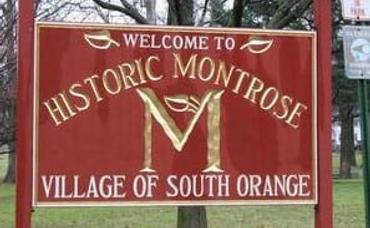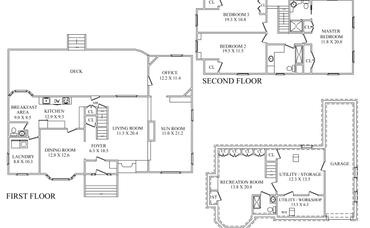 Finding the best preschool is often a concern of many parents in the Maplewood and South Orange, New Jersey, area. And the variety of options for childcare and preschools in this area can be overwhelming, especially coming from extreme populations on both ends of the spectrum. Nicole Van Giesen, an early childhood educational consultant of Your Personal Childcare Concierge based in South Orange, says this is both a good thing and a bad thing. “There are endless possibilities regarding how to piece together childcare for your children,” she says, “but which route is the best for you? And do you have time to spare researching these possibilities?”
Finding the best preschool is often a concern of many parents in the Maplewood and South Orange, New Jersey, area. And the variety of options for childcare and preschools in this area can be overwhelming, especially coming from extreme populations on both ends of the spectrum. Nicole Van Giesen, an early childhood educational consultant of Your Personal Childcare Concierge based in South Orange, says this is both a good thing and a bad thing. “There are endless possibilities regarding how to piece together childcare for your children,” she says, “but which route is the best for you? And do you have time to spare researching these possibilities?”
Since the task of arranging childcare accommodations can be time-consuming and overwhelming, especially when a family has yet to move into their new home, Van Giesen’s childcare concierge service does the hard work for you. “ I decided to provide the service I wish had existed for me when I was looking,” she says. Using your family’s income, work/commute schedule, and educational philosophy as a guide, she tailors and customizes her daycare and preschool recommendations according to your specific need. “Using this approach and template, I can help give your children the best start possible,” she adds.
Her service includes the following: The selection of at least three preschools or daycares that align most closely with your family’s specific needs; scheduling tours for each preschool or daycare on the same day (if possible), providing you with maps to each facility and a suggested list of questions to ask; and a personal consultation with her (either face to face or by phone) to discuss feedback and navigate the pros and cons of each option that will help you make a final decision.
Here are some of the questions that Van Giesen recommends you think about when looking for the ideal situation for your family:
- How many hours of care do you need a day? Do you need full day or half day? Co-op? Extended hours? This will narrow your search immediately. Some preschools and daycares operate the full workday with options for early drop-off and extended care in the late afternoon/early evening. The preschools with half-day programs will require the presence of a parent or guardian. Do you work from home? Would you like for your child or children to receive individualized care from a childcare professional for the hours they are not in school? Something to think about.
- What is your budget for childcare? Most tuition rates are based on the academic year, from September through June. Do you prefer to pay for childcare monthly or quarterly? While there are a couple preschools with sliding scale tuition fees based on a family’s income, this is rare. There are also scholarships available in some preschool programs. The tuition expenses for preschools run the gamut based on your need and ability, and if you prefer to add individual childcare to the equation, that must be factored in as well. Also ask if there is a registration fee.
- What is the preschool or daycare’s educational philosophy? Secular? Non-secular? Montessori? Teacher- directed? Child-directed? There are many different styles and you should do some research about each one so that you’re comfortable with the philosophy offered.
- What is their food policy? Are they nut-free? Nut-safe? Who provides the snacks and/or lunch: facility or parents?
- Do they have an indoor and outdoor play space? It is developmentally necessary that children be given the opportunity to engage in gross motor activities daily. Ask how much time they will be given to play outside each day, whether they are seasonally prepared for “weather-related play,” and where they will go in the event of inclement weather.
- Does my child need to be toilet trained before attending? Some programs require that children 3 years and up are toilet trained before attending. However, many programs are willing to accept children who are not, helping with this process.
- Are there enrichment opportunities? What types of enrichment activities are included within the day? Do they offer classes outside of the regularly scheduled day at an extra cost (dance, yoga, sports, etc.)?
- What is the turnover rate for their staff? Happy teachers translate into happy children. If there is longevity within the staff, the facility is probably doing a good job of considering their needs and fostering professional growth. If there is a constant rotation of new/old staff, inquire further. This could be a red flag.
- If the program is full day, what is their rest policy? Some children nap and some do not. How do they accommodate the children who have trouble getting to sleep? When they outgrow naps and no longer need an extended rest period, how is this handled.
- What is their theory on how children learn best? What kind of activities do they plan for social/emotional growth? How do they provide exposure to academic concepts? How often are the children engaging in play?
- What is their policy on discipline? How a child is taught to settle conflict, with their peers and teachers, sets the tone for how they will develop their coping and resolution skills as they mature. Give them a sample scenario of something your child might do and ask how they would handle it.
What is your expected involvement as a parent? Are there certain requirements you need to meet? Are there parent committees? How often will you be asked to come into the classroom and/or participate in school events?





 By submitting information, I am providing my express written consent to be contacted by representatives of this website through a live agent, artificial or prerecorded voice, and automated SMS text at my residential or cellular number, dialed manually or by autodialer, by email, and mail.
By submitting information, I am providing my express written consent to be contacted by representatives of this website through a live agent, artificial or prerecorded voice, and automated SMS text at my residential or cellular number, dialed manually or by autodialer, by email, and mail.
